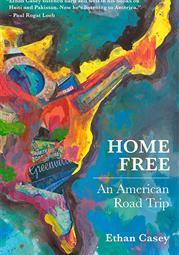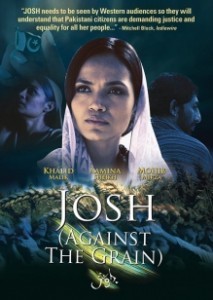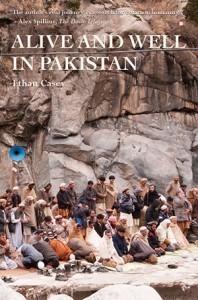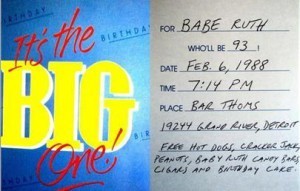Ethan Casey's Blog, page 2
June 30, 2014
Dave Eggers's novel The Circle is a masterpiece
 The Circle by Dave Eggers
The Circle by Dave EggersMy rating: 5 of 5 stars
The Circle is a very darkly comic masterpiece, hilarious in places but ultimately harrowing. It depicts, all too plausibly, a 21st-century hell of our own making: a consensual liberal totalitarianism all the more sinister for being so relentlessly benevolent.
The Circle is a ravenously ambitious fictional Silicon Valley tech company that seems to be Facebook, Google, Microsoft and Amazon all rolled into one. It is the Big Brother of a near-future world of Dave Eggers's imagination, but its encroachments on the privacy and dignity of its billions of users and tens of thousands of employees is really only one or two jumps ahead of the world that we actually (or virtually) live in now. That's what makes the novel both so funny and so appalling.
The Winston Smith character is Mae, a young woman previously wasting away after college in a crummy job at the local utility back in her hometown near Fresno, who can't believe her good fortune when she lands a job at the Circle. She inevitably and implacably gets sucked into the company's corporate culture, which is to say its glib ideology and mission of mind control. Anyone who has worked inside, say, Microsoft Corporation - as I once did for an instructive six-month stint - knows what that is like.
Mae's ex-boyfriend, Mercer, is the voice of reason: "You comment on things, and that substitutes for doing them. ... Under the guise of having every voice heard, you create mob rule, a filterless society where secrets are crimes." The Circle proves the prescience of George Orwell's prediction that "it" would become subtler with the passage of time. Nineteen Eighty-four depicts a directly political form of totalitarianism, because that is what Orwell was in a position to imagine. The Circle is the novel that Orwell would have written if he were alive today.
View all my reviews
Dave Eggers's novel The Circle is a masterpiece
 The Circle by Dave Eggers
The Circle by Dave EggersMy rating: 5 of 5 stars
The Circle is a very darkly comic masterpiece, hilarious in places but ultimately harrowing. It depicts, all too plausibly, a 21st-century hell of our own making: a consensual liberal totalitarianism all the more sinister for being so relentlessly benevolent.
The Circle is a ravenously ambitious fictional Silicon Valley tech company that seems to be Facebook, Google, Microsoft and Amazon all rolled into one. It is the Big Brother of a near-future world of Dave Eggers's imagination, but its encroachments on the privacy and dignity of its billions of users and tens of thousands of employees is really only one or two jumps ahead of the world that we actually (or virtually) live in now. That's what makes the novel both so funny and so appalling.
The Winston Smith character is Mae, a young woman previously wasting away after college in a crummy job at the local utility back in her hometown near Fresno, who can't believe her good fortune when she lands a job at the Circle. She inevitably and implacably gets sucked into the company's corporate culture, which is to say its glib ideology and mission of mind control. Anyone who has worked inside, say, Microsoft Corporation - as I once did for an instructive six months - knows what that is like.
Mae's ex-boyfriend, Mercer, is the voice of reason: "You comment on things, and that substitutes for doing them. ... Under the guise of having every voice heard, you create mob rule, a filterless society where secrets are crimes." The Circle proves the prescience of George Orwell's prediction that "it" would become subtler with the passage of time. Nineteen Eighty-four depicts a directly political form of totalitarianism, because that is what Orwell was in a position to imagine. The Circle is the novel that Orwell would have written if he were alive today.
View all my reviews
June 8, 2014
Pakistan: “It’s happening right now”





PHOENIX – On Sunday here I was the main speaker at the annual Daal Saag Luncheon of the local Pakistan Information and Cultural Organization (PICO). I had just sat down after giving my speech, when the Pakistani man sitting to my right informed me that an attack was taking place on Jinnah International Airport in Karachi. “It’s happening right now,” he emphasized.
The news, available via the smartphone of anyone and everyone in the room, brought home the surreal immediacy of the events unfolding on the other side of the planet, even as we tried to say good things about Pakistan for the sake of invited guests such as Congresswoman Kyrsten Sinema (D-AZ) and Maricopa County Sheriff Joe Arpaio. This is the meaning of terrorism, especially in the hyper-connected 21st century: there’s nowhere we can go to get away from it. At the same time, it was also true that those of us in the ballroom of the Phoenix Airport Marriott were a lot farther from the immediate danger than were the travelers and staff at Pakistan’s busiest airport.
In my writing and public speaking I try to stress to Americans the most important thing I discovered in getting to know Pakistan and Pakistanis: our common humanity. That sounds, and is, very earnest and feel-good, but its dark underbelly is the potential and reality of human evil. I’m often asked whether, in my nearly two decades of visiting and living in Pakistan, I’ve ever felt myself to be in physical danger. The answer is yes, at least twice: in a town in the North-West Frontier Province in 1999, and at an arts festival in Karachi disrupted by a political party’s goons in 2009. Age and experience have made me more sober about the real possibility of danger, and I also keep in mind something my friend and colleague Mary Kay Magistad told me years ago in Cambodia: that you can’t report the story if you’re dead.
But the Karachi airport attack is sobering anew. I’ve been telling anyone who asks that I plan to focus my next trip to Pakistan on Karachi, because that huge but oddly neglected city is so clearly at the epicenter of all that’s happening in and to Pakistan today. The airport attack not only renders my rather glibly expressed intention a statement of the grimly obvious, but also forces me to wonder not only whether I would actually travel to Pakistan again, but even whether I could. Will the airport be safe? Will it even be open?
The paradox of our times is that we’re at once more immediately and intimately connected than ever before, and more isolated and paranoid. My pitch to the Phoenix audience was that we can’t count on the authorities or established institutions to do for us what needs to be done, which includes first and foremost reminding ourselves and each other of our shared humanity. For my part, I’m continuing to take the story and message of my book Alive and Well in Pakistan to readers and audiences around America. It’s what I’m in a position to do.
I really don’t claim to know what policies either the Pakistani or the U.S. government should pursue, in response to this attack or anything else. What I do claim is that the most important thing for Americans to know about the Karachi attack is not any geopolitical upshot, but the fact that innocent Pakistanis died.
Ethan Casey is the author of Alive and Well in Pakistan (updated and expanded 10th-anniversary edition, 2014) and Home Free: An American Road Trip (2013).





The post Pakistan: “It’s happening right now” appeared first on Ethan Casey.
June 7, 2014
Enter giveaway for Home Free: An American Road Trip!





 Please share: I believe that my book Home Free: An American Road Trip is a very revealing, even landmark, book that anyone who wants to know and understand today’s America would do well to read.
Please share: I believe that my book Home Free: An American Road Trip is a very revealing, even landmark, book that anyone who wants to know and understand today’s America would do well to read.
Paul Rogat Loeb, author of Soul of a Citizen, says, “Ethan Casey listened hard and well in his books on Haiti and Pakistan. Now he’s listening to America.” Bill Steigerwald, author of the brilliant debunking road-trip book Dogging Steinbeck, believes that I did in Home Free what John Steinbeck failed to do in his famous 1962 bestseller Travels with Charley – and I take that as a very high compliment.
I’m running a giveaway of 50 copies of Home Free on Goodreads. You can join the giveaway through this link:
https://www.goodreads.com/giveaway/show/94492-home-free-an-american-road-trip
You can also like me on Facebook and follow me on Goodreads:
https://www.facebook.com/ethancasey.author?ref=hl
https://www.goodreads.com/author/show/723009.Ethan_Casey
Finally, I was recently asked to contribute an op-ed article based on Home Free to The Hindu, a national English-language newspaper in India. That article, titled “In search of America …” has just been published. Here’s the link:
http://www.thehindu.com/opinion/op-ed/in-search-of-america/article6090097.ece





The post Enter giveaway for Home Free: An American Road Trip! appeared first on Ethan Casey.
May 20, 2014
Alive and Well in Pakistan relaunched – spread the word!





The updated 10th-anniversary edition of my book Alive and Well in Pakistan was launched earlier this month, and I’m now very actively working to give away 3,000 copies to students, opinion leaders, and elected officials around the United States:
Dr. Rick Halperin of Southern Methodist University is distributing 1,000 copies to students in SMU’s Embrey Human Rights Program and at other institutions nationwide.
Pakistani-American friends in the Washington, DC area are making plans to distribute 1,000 copies to members of the U.S. Congress and other influential people in and around the nation’s capital. (I will be visiting Washington, and thanking that community in person, in late September.)
Hundreds of students at Texas Christian University will be given copies as part of my participation in TCU’s campus-wide focus on Central Asia throughout the 2014-15 academic year.
Pakistani-Americans in Arlington, Texas will give 100 copies to all Democratic members of the Texas state legislature, and others, at the state party convention in June.
Others in Illinois, Arizona and California have taken delivery of copies to give away.
I am hoping to do another printing as soon as August, from which I would give away another 3,000 copies. To do that effectively, I need your help. If you want to help influence mainstream Americans to gain a more accurate and sympathetic human appreciation for Pakistan and Pakistanis through Alive and Well in Pakistan, please contact me.
To purchase your own personal copy for $18.95 plus $3.95 U.S. shipping, use this button:

You also can help by rating or reviewing Alive and Well in Pakistan – the new edition, at this link – on Goodreads. You can also like it on Facebook. I’ll have it for sale on Amazon soon too, but frankly I’d rather you bought it directly from me. :-)
Many thanks to my wonderfully supportive friends Talat Rashid, Mir Ali and the Chicagoland Pakistani community for hosting a wonderful launch event May 9 at the Bolingbrook Golf Club. Special thanks to Mayor Roger Claar of Bolingbrook, who was kind enough to attend the dinner and to provide a great endorsement printed, along with one from Congressman Chris Van Hollen of Maryland, on the book’s back cover. Thanks also to Faisal Tirmizi, Consul General at the Pakistani consulate in Chicago, who also attended the dinner.
I’m making plans to print and distribute the new edition in Pakistan. I will try to get it stocked at Saeed Book Bank in Islamabad and other major bookstores, but I also want to give it away to students at Pakistani universities and secondary schools. I can’t make any money from selling books in Pakistan, so I’m glad just to make sure that the new Alive and Well in Pakistan is widely read there. If you are in Pakistan and think you can help, please drop me a note.
Finally, here are links to two recent articles of mine:
My interview with Iram Parveen Bilal, director of the wonderful Pakistani feature film Josh (Against the Grain) , which has just been released on DVD and online through iTunes, Netflix, and Amazon.
My pointed rejoinder to the Pakistani novelist Kamila Shamsie, who recently unhelpfully asked in The Guardian, “Where is the American writer writing about America in Pakistan?” My answer: Here I am!





The post Alive and Well in Pakistan relaunched – spread the word! appeared first on Ethan Casey.
May 15, 2014
See acclaimed Pakistani film “Josh” on DVD!





 On March 5, 2013, I had the memorable pleasure of attending the North American premiere of the wonderful Pakistani feature film Josh (English title: Against the Grain). It happened to be in my home city of Seattle, and director Iram Parveen Bilal was present. Josh is the story of Fatima, an elegant and well-bred elite Karachiite who involves herself in village society and politics – thereby endangering herself and others – when she insists on finding out why her beloved maid has gone missing. It’s a cross-cultural story but emphatically a domestic Pakistani one, with minimal reference to the world outside Pakistan. In my review of the film published in the Pakistani newspaper Dawn, I reflected:
On March 5, 2013, I had the memorable pleasure of attending the North American premiere of the wonderful Pakistani feature film Josh (English title: Against the Grain). It happened to be in my home city of Seattle, and director Iram Parveen Bilal was present. Josh is the story of Fatima, an elegant and well-bred elite Karachiite who involves herself in village society and politics – thereby endangering herself and others – when she insists on finding out why her beloved maid has gone missing. It’s a cross-cultural story but emphatically a domestic Pakistani one, with minimal reference to the world outside Pakistan. In my review of the film published in the Pakistani newspaper Dawn, I reflected:
Americans are accustomed to seeing other countries, especially Pakistan, as refractions of our own national worries and self-regarding obsessions. That is our problem, not Pakistan’s, and Josh serves us well by declining to pander or spoon-feed. It is a very good film, well conceived and executed on a small budget, and the question in my mind as I left the cinema was whether and how it might be possible to shoehorn such a serious piece of Pakistani storytelling into the awareness of some measurable fraction of the millions who know Pakistan only through TV news and Hollywood movies such as Zero Dark Thirty. I was very nearly the only gora [Westerner] at the Seattle screening.
In a q-and-a session following the screening, Iram told the audience: “I felt that there are a lot of doctors and engineers in Pakistan, and there are not many storytellers. Everybody makes documentaries about Pakistan. I wanted my first feature-length film to be from Pakistan. We worked with a completely Pakistani cast and crew.”
In the year since, Josh has been screened in a number of other U.S. cities and has garnered much well-deserved acclaim, including the ARY Viewers Choice Award for best independent film. As of May 7 it is available on DVD and online through iTunes, Netflix, and Amazon. The ARY award, Iram told me on May 5, is “a sweet ending for the theatrical journey.”
But she continues to have aspirations for Josh and its impact. With the DVD release, Iram is hoping to reach a wider audience. “There were some really great screenings,” she told me. “More than ten of them sold out. So there are definitely more people who want to see it than saw it.” In particular, she hopes that Americans who lack personal exposure to Pakistan will see Josh. “I definitely feel satisfied in terms of the Pakistani diaspora,” she says. “In terms of the Western audience, not really. Western audiences need to watch it. It’s like a ticket to Karachi, a journey to Karachi in 100 minutes. It’s a very realistic portrayal of Pakistan; I pride myself on that. In some ways, I feel non-Pakistanis are a better audience for the film, and that’s why I’m looking forward to the DVD release.”
When I asked Iram about her hopes for the film’s impact, she reflected: “I don’t think that I’m trying to initiate a huge peace agreement, or anything like that. But it’s not really modest. You don’t know what type of wheels are going to turn in the viewer’s brain, and that could lead to a big change in someone’s life. What we can hope is that people consume our art and then move a bit. The more people watch it, the more people will maybe initiate a peace agreement or something.”
If making Josh was a journey for Iram as a first-time filmmaker, all the grassroots promotion she’s done has been another adventure in itself. Her enthusiasm and work ethic are impressive and make clear how strongly Iram believes – as well she should – in the value of her art.
“I think, as independent artists, we’re both artists and business people now,” she told me. “There’s no two ways about it, so you might as well embrace it. It’s very exhausting, but there’s a certain amount of empowering that can happen when you work from the ground up. And when you work from the ground up, you build a wide base for yourself. And then maybe even some of the people at the top start paying attention.”
Visit the Josh website to support independent Pakistani filmmaking by purchasing the DVD, or contact Iram to inquire about screenings.





The post See acclaimed Pakistani film “Josh” on DVD! appeared first on Ethan Casey.
April 14, 2014
Where Is the American Writer Writing about America in Pakistan?





Here I am. That’s my short answer to the Pakistani novelist Kamila Shamsie’s rhetorical question the other day in The Guardian. Here I am, an American, living in America, writing about America’s involvement – as well as my own – in Pakistan, and trying to catch the passing attention of some measurable fraction of the great distracted American public.
Shamsie’s words, at the tail end of a profile pegged on the release of her latest novel, were understandably exasperated. But they were also exasperating, because her question was used as the article’s attention-grabbing headline – it certainly grabbed my attention – and because, well, here I am.
It’s not about me, of course; I’m not saying that Kamila Shamsie should promote or even necessarily notice my writing in particular. But if someone like her is going to say things like what she said to The Guardian, then it’s both fair and, I hope, helpful for someone like me to point out that for her to paint with such a broad brush is both unfair and unhelpful.
What she said was: “I am deeply critical of American writers for their total failure to engage with the American empire. It’s a completely shocking failure, not of any individual writer … but it’s the strangest thing to look around and say, ‘Where is the American writer writing about America in Afghanistan, America in Pakistan?’ At a deep level, there is a lack of reckoning.”
The phrase “not of any individual writer” functions as a caveat, but otherwise her claims are un-nuanced to the point of being aggressively unequivocal: “total failure to engage … completely shocking failure.” I share Shamsie’s dismay, but I think it’s important to retort to her that it’s easier for a Pakistani writer living in London on a British passport to prescribe engagement with the American empire, than it is for an American writer living in America to practice it.
I’m not excusing anyone’s failure to engage, but several points need to be made. One is that America’s empire is not only global but also internal, and there are many examples of heroic American writers engaging with that, from Larry McMurtry to Octavia Butler to the great Peter Matthiessen, who just passed away at age 86. Two of Matthiessen’s most powerful testaments are the great Shadow Country trilogy, about the colonization of Florida, and the nonfiction feat of literary courage In the Spirit of Crazy Horse, about the notorious persecution of the Native American activist Leonard Peltier, the publication of which was suppressed for some years by legal action.
Another point is that the American public is supremely difficult to interest in anything, much less to mobilize. This profoundly frustrating phenomenon is easy to disdain or rage against, less easy to engage or challenge in any sustained or effective way. It’s like wrestling with a giant ameba. In fairness to Shamsie, this might be what she was getting at in saying that “At a deep level, there is a lack of reckoning.” It’s like the proverbial tree falling in a forest: If an American writer engages with the American empire, but no American readers read it, is the writer still engaging with the empire?
The American public’s chronic disengagement is a big part of what any American writer is up against. I deal with it myself, from the woman in the back of the room at a church in Seattle who – bless her heart – raised her hand to ask, “What’s a drone attack?” to some guy named Earl who, reviewing my book Home Free: An American Road Trip on Goodreads, quite inaccurately complained that I did not seek out white people and/or Americans with right-wing views: “the people that Mr. Casey talks to are either liberal intellectuals or poor, downtrodden, and minority.” It’s apparent from internal evidence that Earl did actually read my book, which I appreciate, but his review is a telling confirmation of George Orwell’s observation that reviewers will find bogus literary excuses to dismiss books that challenge their ideological predilections.
But it’s important for us pointy-headed coastal and transatlantic types not simply to write off Middle America as a lost cause. This is personal to me, because Middle America (small-town Wisconsin) is where I come from. It’s also a big part of the reason that, having engaged at book length with the American empire in Pakistan and Haiti, I left the comfy liberal enclave of Seattle, where I live, to spend 3 1/2 months driving all around Middle America during the 2012 election season.
Finally, Shamsie’s privileging of fiction over nonfiction needs to be challenged. “I don’t think there’s anything like the novel for empathy,” she told The Guardian. “… If you write non-fiction it’s as though you are from the outside looking at something. But if you write fiction, you are behind someone’s eyes looking out, and that’s the difference.” Shamsie is a veteran novelist, and I’ve never seriously attempted to write fiction, but I don’t buy it. There’s a whiff of condescension in the claim, as if by definition nonfiction cannot be as serious or deeply engaged as fiction. As a veteran traveler, reporter, and writer of engaged nonfiction, I endorse Norman Mailer’s much subtler and truer claim that “there’s no clear dividing-line between experience and imagination.” For proof, and indeed for a supreme instance of an American writer’s engagement with the American empire, one need look no further than Mailer’s own nonfiction masterpiece The Armies of the Night.
Granted, that book was published 46 years and several wars ago. Which supports the point of Shamsie’s question: Where are the equivalent American books today? My point is that such books do exist, but it’s perpetually difficult for any writer to slip any message or story that Americans don’t already want to hear past the cacophony of American culture and through the fetid miasma of American nationalist pieties. And browbeating doesn’t work; I’ve tried it.
And “rage” – admittedly not Shamsie’s word but interviewer Natalie Hanman’s – is less useful than candor. It’s both possible and desirable, even necessary, to be at once candid and calm. This is why – if I may end as I began, on a self-congratulatory note – The Daily Telegraph‘s Alex Spillius identified the true subversive quality of my book Alive and Well in Pakistan (which I’m just now republishing in an updated 10th-anniversary edition): “The author’s real journey is a search for common humanity.”
Ethan Casey is the author of Alive and Well in Pakistan: A Human Journey in a Dangerous Time (2004; updated 10th-anniversary edition 2014), Home Free: An American Road Trip (2013), and Bearing the Bruise: A Life Graced by Haiti (2012).





The post Where Is the American Writer Writing about America in Pakistan? appeared first on Ethan Casey.
April 5, 2014
Babe Ruth Birthday Party





Why Celebrate Babe Ruth’s Birthday in Detroit? Why Not?
 More than two decades ago, in the early 1990s, the task at hand for some of us in Detroit was still to try to save Tiger Stadium. It’s a long story, but in a city with a Third World-
More than two decades ago, in the early 1990s, the task at hand for some of us in Detroit was still to try to save Tiger Stadium. It’s a long story, but in a city with a Third World-
level infant mortality rate and many other severe problems, there was a lot more at stake than baseball or nostalgia. In those now long-ago days, among the active inner core of the Tiger Stadium Fan Club, Tom Derry and I were the two young single guys, so we palled around a bit.
The leadership qualities of other, older fan club leaders like Frank Rashid were more obvious. Tom’s charisma, by contrast, is quiet and unassuming, and all the more impressive given that, despite being physically a big guy, Tom never imposes himself. All Tom does is take the lead when the lead needs taking and call ‘em like he sees ‘em. “I don’t see why we can’t just say the truth,” I remember him saying at a fan club meeting where strategies were being debated. “If it’s the truth, we should say it.” It had the oracular authority of a statement of the profoundly obvious. Most people avert their eyes from the profoundly obvious, but Tom doesn’t. Another thing I remember him saying in the same vein was, “Why are you a writer? Because you couldn’t be a major league baseball player. Same reason I’m a mailman.”
Less steadfast and more restless than Tom, I left town. Tiger Stadium was needlessly destroyed, and those of us who would have it otherwise have had to deal with the sad and ugly truth that things that shouldn’t happen often happen anyway. One thing I’ve relearned since revisiting Detroit and reconnecting with Tom in 2012 – he figures prominently in Chapter 2 of my book Home Free: An American Road Trip – is that, even faced with painful material or political or personal loss, we remain in control of both our choices and our attitude.
Tom is still the same youthful, upbeat fellow I knew twenty-plus years ago, albeit now with a touch of gray at the temples. And he still takes the lead when the lead needs to be taken. One way he does this is through the Navin Field Grounds Crew, the wonderful group of volunteers who maintain the field at Michigan and Trumbull because the City of Detroit won’t do it and it should be done. “It still pisses me off, Tom,” I said to him when we visited the field together. “I know you’ve had a lot more practice at not being angry …”
“I think it’s because I’ve gotten so involved in cleaning it up,” he said. That’s Tom for you. He’d rather do something positive and helpful, whatever can be done now, than waste time and emotional energy being mad about things that can’t be helped anymore.
Tom’s other labor of love is the annual Babe Ruth Birthday Party in early February. He was already doing it, at his house, when I lived in Detroit. “You were there,” he reminded me. “I’ve got a picture of you. It’s not real close up, but there’s a bunch of people in it, like John and Judy Davids and the Burke sisters. And you can point and go, ‘Yeah, that’s Ethan Casey.’” It’s humbling to be reminded that I was there, because the Ruth Party has since burgeoned into a greatly appreciated Detroit institution. Recent Ruth Parties have attracted more than 700 people – let’s call it 714 people, one for each Ruth homer – to Nemo’s Bar on Michigan Avenue, a block east of Tiger Stadium.
Tom Derry’s 27th annual Babe Ruth Birthday Party will be held at Nemo’s starting at 7:14 p.m. on Saturday, February 1. I hear there’s going to be some big football game the next day, but there’s no better time than early February, with spring training around the corner, to celebrate baseball. But why hold a birthday party for Babe Ruth, of all people, in Detroit? Why not? The answer is profoundly obvious. For one thing, Ruth spent a lot of time eating, drinking, and performing baseballic heroics in Detroit. To Tom, the connection between Ruth and Detroit is so profoundly obvious that he and his fiancee are planning their wedding around it. “Sarah and I will be married at home plate August 3,” Tom tells me. “Sarah gets to stand in the left-handed batter’s box, the same place where Ruth batted for the Red Sox and Yankees. How cool is that?”
That’s pretty damn cool. Come to the Ruth Party at Nemo’s on February 1 to get all the inside baseball.





The post Babe Ruth Birthday Party appeared first on Ethan Casey.
February 11, 2014
East of Eden is as good as I remembered it
January 6, 2014
Review of Lustrum, a terrific historical novel of Rome by Robert Harris
https://www.goodreads.com/review/show...






